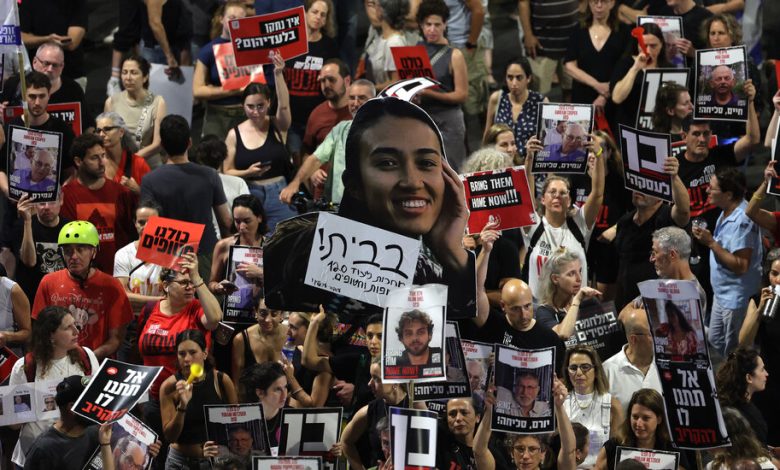Hamas does not know how many Gaza hostages are still alive, a spokesman says.

Hamas does not know how many of the roughly 120 hostages Israel says remain in Gaza are still alive, a spokesman for the militant group said in an interview that aired Thursday.
The return of the hostages taken in the Hamas-led Oct. 7 attacks is a central part of the latest cease-fire proposal that could bring the war in Gaza to an end. U.S., Egyptian and Qatari mediators have been working to bridge the gap between Israel and Hamas on the plan. Israel has said that at least a third of the remaining hostages have died.
Asked by a CNN reporter in Beirut how many of the hostages held by Hamas and other groups were still living, the spokesman, Osama Hamdan, said neither he nor anyone else in the leadership of the militant organization knew.
“I don’t have any idea about that; no one has any idea about this,” he said. It was not clear when the interview was conducted.
The fate of the hostages has become a political issue in Israel, where Prime Minister Benjamin Netanyahu has faced growing criticism about how he has handled the war in Gaza, which he has vowed to continue until Hamas is destroyed. Mr. Netanyahu is also facing international calls from allies to protect Palestinian civilians, provide more aid and rescue the remaining hostages.
Last Saturday, Israel rescued four hostages after eight months of captivity in a mission in central Gaza that left scores of Palestinians dead. In November, during the only cease-fire of the war, 105 hostages were released by Palestinian groups.
According to the terms of the latest cease-fire proposal, hostages would be released in three phases, with women and older people being set free first. Israeli forces would withdraw from populated areas of Gaza and Israel would free hundreds of Palestinian detainees.
During the second phase, all remaining Israeli hostages who are alive would be freed. In the final phase, the remains of the hostages who have died would be exchanged.
The lack of clarity about the fate of the hostages could complicate the already challenging negotiations.
Asked why Hamas had yet to accept the proposal, which is backed by the United States and the United Nations, Mr. Hamdan said it was a “positive step” but that they would need “to see the facts on the ground” on what Israel was committing to. He said Israel would need to make it clear that it would withdraw completely from the Gaza Strip and allow Palestinians to determine their own future.
Secretary of State Antony J. Blinken said on Wednesday that some of the changes suggested by Hamas in a counterproposal presented on Tuesday were unacceptable, suggesting the sides were still far apart.
Jake Sullivan, the U.S. national security adviser, said Thursday that the Biden administration was working with other mediators to “bridge the remaining gaps” to reach an agreement for a truce.
